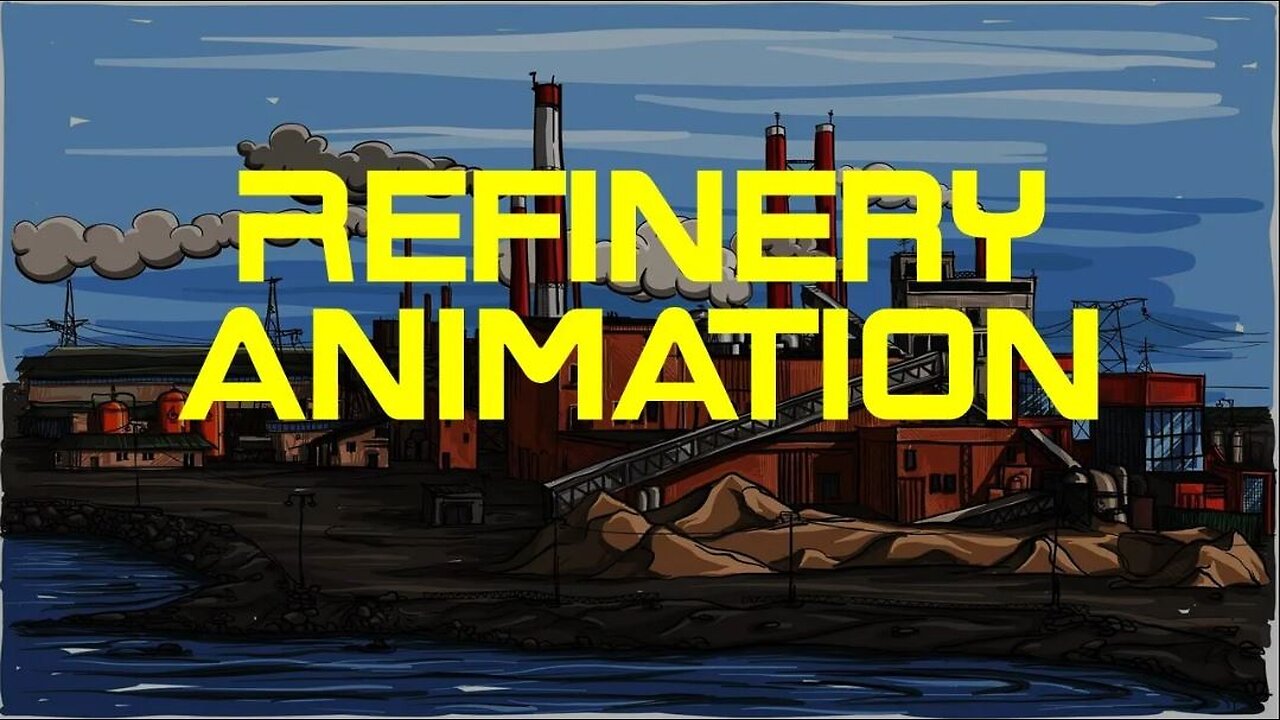Premium Only Content

From Crude to Refined: Animated Guide to Refinery Operations
A refinery, also known as an oil refinery or petroleum refinery, is an industrial facility that processes crude oil to produce various valuable products, primarily fuels and petrochemicals. Refineries play a vital role in the oil and gas industry by converting crude oil into usable products that meet market demand.
The primary objective of a refinery is to separate and convert the complex mixture of hydrocarbons found in crude oil into more useful and valuable products. The refining process involves a combination of physical separation, chemical reactions, and purification techniques to transform crude oil into finished products.
The refining process typically begins with the separation of crude oil into its various components through a process called distillation. Distillation involves heating the crude oil in a distillation column, allowing different hydrocarbon fractions with different boiling points to vaporize and then condense into separate streams. This process yields products such as gasoline, diesel, jet fuel, and heating oil.
After distillation, additional refining processes are employed to further convert and upgrade the fractions obtained. These processes may include catalytic cracking, hydrocracking, reforming, alkylation, and others, which modify the molecular structure of the hydrocarbons to enhance their quality, improve performance, and increase the yield of valuable products.
In addition to fuels, refineries also produce petrochemicals. Petrochemicals are chemicals derived from petroleum and are used in the manufacturing of various products, including plastics, synthetic fibers, solvents, lubricants, and more. Petrochemical production processes in a refinery involve further transformation and separation of specific hydrocarbon streams to obtain the desired chemical compounds.
Refineries are highly complex facilities that require advanced technologies, process controls, and safety measures. They consist of various units and equipment, including distillation columns, reactors, heat exchangers, pumps, storage tanks, and extensive piping networks.
Environmental considerations and sustainability play a significant role in modern refineries. Stringent regulations and industry standards are implemented to minimize the environmental impact of refinery operations, including air emissions, water management, and waste disposal.
Refineries are typically located near oil fields, major ports, or transportation infrastructure to ensure the efficient supply and distribution of crude oil and finished products. They are critical components of the global energy supply chain, providing the fuels and petrochemicals that power transportation, industry, and modern society.
In summary, a refinery is a complex industrial facility that processes crude oil into a range of valuable products through various refining processes. It plays a pivotal role in meeting global energy demands and supplying essential fuels and petrochemicals for a wide range of applications.
-
 LIVE
LIVE
GritsGG
54 minutes agoQuad Win Streaks!🫡 Most Wins in WORLD! 3600+
48 watching -
 56:54
56:54
Crypto Power Hour
1 hour agoSpecial Guest Natalie Brunell, Author & Bitcoin Maxi
8957 -
 LIVE
LIVE
Total Horse Channel
14 hours agoAMHA 2025 World Show 9/26
271 watching -
 LIVE
LIVE
LFA TV
17 hours agoBREAKING NEWS ALL DAY! | FRIDAY 9/26/25
3,079 watching -
 1:25:41
1:25:41
Chicks On The Right
4 hours agoComey's FAFO moment, Dallas sniper details, DFWYF, and who to trust in media.
19.4K7 -
 DVR
DVR
Welcome to the Rebellion Podcast
17 hours ago $1.54 earnedYou Made it to FriJay - WTTR Podcast Live 9/26
16.7K -
 1:29:14
1:29:14
Game On!
18 hours ago $2.07 earnedNFL Week 4 Betting Report Preview!
20.9K3 -
 21:05
21:05
Adam Does Movies
23 hours ago $1.71 earnedAlien: Earth Episode 8 - Recap
21.6K4 -
 18:49
18:49
World2Briggs
20 hours ago $2.09 earnedTop 10 States To retire in 2026 According to Experts
24K4 -
 19:03
19:03
Blackstone Griddles
15 hours agoParmesan Ranch Chicken Sandwich oxn the Blackstone Griddle
25K3